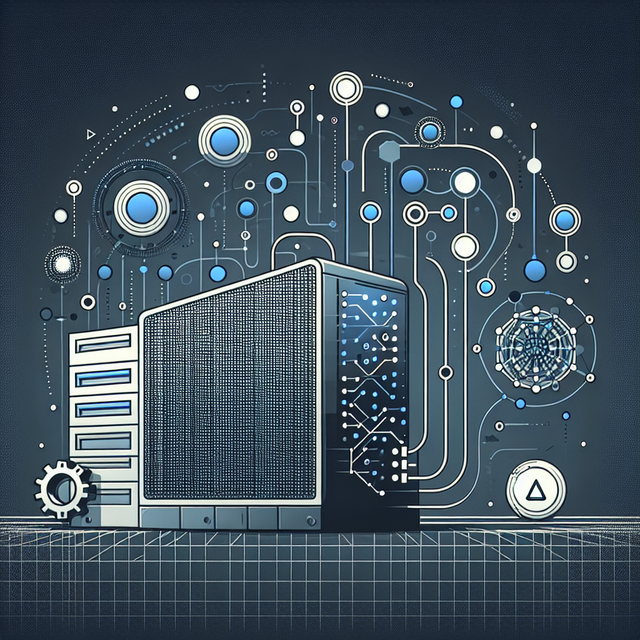
Predictive Maintenance Coding with AI Assistance
Predictive maintenance is undergoing a revolutionary transformation through AI-assisted coding practices. As industries increasingly rely on smart maintenance solutions, the integration of artificial intelligence in developing predictive maintenance software has become a game-changer. This comprehensive guide explores how AI is reshaping the landscape of predictive maintenance coding and its impact on industrial efficiency.
Table of Contents
- Understanding AI-Assisted Predictive Maintenance
- Key Components of AI-Powered Maintenance Systems
- Benefits of AI in Maintenance Code Development
- Implementation Challenges and Solutions
- Best Practices for AI-Enhanced Maintenance Coding
- Future Trends and Opportunities
Understanding AI-Assisted Predictive Maintenance
Predictive maintenance powered by AI represents a significant leap forward from traditional maintenance approaches. By leveraging artificial intelligence and machine learning algorithms, organizations can now develop more sophisticated maintenance systems that accurately predict equipment failures and optimize maintenance schedules.
AI Code Metrics’ platform plays a crucial role in this evolution by providing developers with intelligent tools for creating and optimizing predictive maintenance code. The platform’s AI code analysis capabilities ensure that maintenance algorithms are both efficient and reliable.
Key Components of AI-Powered Maintenance Systems
Data Collection and Processing
- Sensor integration code optimization
- Real-time data streaming implementations
- Data preprocessing algorithms
- Quality assurance protocols
Algorithm Development
- Machine learning model integration
- Pattern recognition systems
- Anomaly detection frameworks
- Predictive analytics engines
System Integration
- API development and management
- Legacy system compatibility
- Cloud infrastructure integration
- Security protocol implementation
Benefits of AI in Maintenance Code Development
Enhanced Code Quality
AI-assisted coding through platforms like AI Code Metrics significantly improves code quality by:
- Automating routine maintenance tasks
- Identifying potential code vulnerabilities
- Ensuring consistent coding standards
- Optimizing performance metrics
Improved Accuracy
Predictive maintenance systems built with AI assistance achieve higher accuracy through:
- Advanced pattern recognition
- Reduced human error
- Continuous learning capabilities
- Dynamic threshold adjustments
Faster Development Cycles
Developers can accelerate their maintenance coding projects by:
- Utilizing pre-built AI components
- Automating code testing and validation
- Leveraging intelligent code suggestions
- Streamlining deployment processes
Implementation Challenges and Solutions
Technical Challenges
- Data quality and consistency
- Algorithm complexity
- Integration with existing systems
- Scalability concerns
AI Code Metrics addresses these challenges through its comprehensive suite of development tools and intelligent insights, ensuring smooth implementation of predictive maintenance solutions.
Regulatory Compliance
In regulated industries, maintaining compliance while implementing AI-assisted maintenance systems is crucial. AI Code Metrics provides:
- Automated compliance checking
- Audit trail generation
- Documentation automation
- Risk assessment tools
Best Practices for AI-Enhanced Maintenance Coding
Code Development Standards
- Implement consistent naming conventions
- Maintain comprehensive documentation
- Use modular design principles
- Follow security best practices
Testing and Validation
- Conduct thorough unit testing
- Perform system integration testing
- Validate AI model performance
- Monitor system reliability
Continuous Improvement
- Regular code reviews
- Performance optimization
- Model retraining schedules
- System updates and maintenance
Future Trends and Opportunities
Emerging Technologies
- Edge computing integration
- Advanced AI model deployment
- IoT device optimization
- Quantum computing preparation
Industry Applications
- Manufacturing automation
- Energy sector optimization
- Healthcare equipment maintenance
- Transportation system monitoring
Conclusion
AI-assisted predictive maintenance coding represents the future of industrial maintenance systems. By leveraging platforms like AI Code Metrics, organizations can develop more efficient, reliable, and intelligent maintenance solutions. The combination of AI-powered development tools and predictive maintenance capabilities creates a powerful framework for industrial innovation and operational excellence.
Explore how AI Code Metrics can transform your predictive maintenance coding practices and help your organization achieve new levels of operational efficiency and reliability.